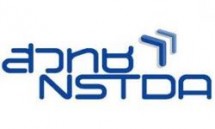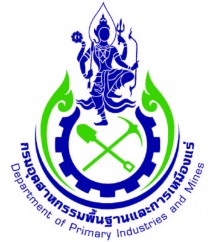How Asian companies are navigating the trade war
| |
|||
| แหล่งที่มา : https://asia.nikkei.com |
วันที่โพสต์ : 19 ก.ย. 2561 | ||
| How Asian companies are navigating the trade war | |||
 |
|||
|
HONG KONG -- Every time American lawmakers tried to crack down on cheap Chinese aluminum over the last decade, the leaders of China Zhongwang Holdings seemed to find a way to keep their products flowing into the U.S. When Washington imposed "anti-dumping" rules on the aluminum it produced for window and door frames in 2009, the company began exporting another product that wasn't covered by the regulations. After the U.S. clamped down on Chinese metal producers again in 2016, the company bought Germany's Aluminiumwerk Unna and began shipping products to America from there. But China Zhongwang finally ran out of options on June 1, when the Trump administration's 10% tariff on imports of aluminum products went into full effect. "We ceased almost all our exports to the U.S.," managing director Amanda Xu Jing told the Nikkei Asian Review on Aug. 27. The company, which remains the world's second-largest aluminum extrusion products company, is now looking to make up for lost U.S. business by expanding in Europe and at home. The Trump administration's tariffs on steel and aluminum were the first big blast in his trade war, and they have already shot through the global economy. They have lifted the fortunes of U.S. producers of the metals, as President Donald Trump had hoped, while hurting foreign competitors like China Zhongwang. As a result, many products that use steel and aluminum -- from Toyota cars to cans of Coca-Cola -- are likely to cost more.
|
|||
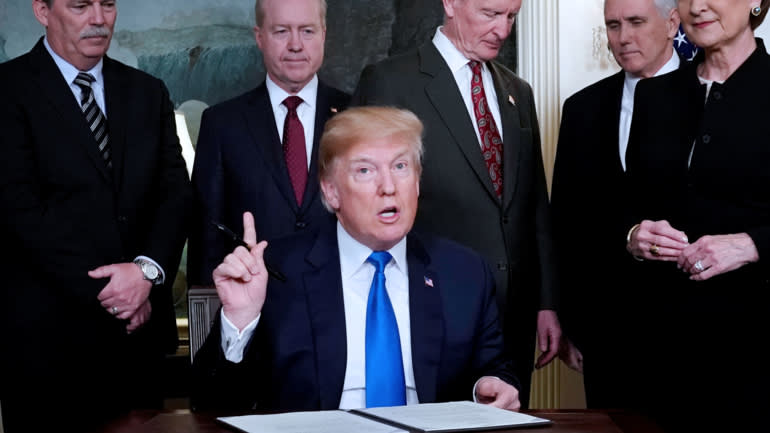 U.S. President Donald Trump has imposed tariffs on hundreds of billions of dollars worth of Chinese goods since March. © Reuters |
|||
Now comes a far bigger blast: Trump announced on Sept. 17 that he intended to impose 10% tariffs on $200 billion worth of Chinese goods, which would rise to 25% by the start of 2019. He also said he was prepared to "immediately" slap tariffs on all of China's remaining exports to the U.S. -- amounting to $267 billion of goods -- if Beijing "takes etaliatory action." China did just that, imposing 5% and 10% levies on $60 billion worth of American goods. "In order to safeguard our legitimate rights, our interests and the global free trade order, China will have to counter the developments," China's Ministry of Commerce said in a Sept. 18 statement. The latest round of escalation is large enough to rattle global trade, raise prices on a much wider array of products and reshape complicated supply networks, experts say. China Zhongwang's experience could be a sign of things to come for a swath of Chinese manufacturers. (See the Nikkei Asian Review's list of impacted companies here.) "The immediate impact on trade volumes will be substantial, [with] declines in the total value of trade and a diversion of trade toward alternative suppliers and customers," said David Hummels, dean and professor of economics at Purdue University's Krannert School of Management. "I believe these effects will be much larger than those seen in the aftermath of disasters such as Fukushima." A day after Trump's announcement, Fang Xinghai, vice chairman of the China Securities Regulatory Commission, said China is "very much fully prepared" for the most severe punitive tariffs on its products. The impact on China's growth would be limited to about 0.7%, he said. |
|||
|
"In order to safeguard our legitimate rights .. and the global free trade order, China will have to counter the developments" China's Ministry of Commerce on Sept. 18 |
|||
|
Already, the prospect of further tariffs is prompting companies to move more factories from China to lower-cost countries in Asia. About 30% of American companies operating in China say they are looking to buy components or build products outside of both the U.S. and China to avoid tariffs, according to a recent survey by AmCham China and AmCham Shanghai. Most of this business will move to Southeast Asia or the Indian subcontinent, while only 6% said they would consider relocating to the U.S. Many Asian companies say the trade war has prompted them to accelerate a shift out of China. Li & Fung, a major supplier of clothes and household goods to retailers including Walmart and Macy's, said its procurement from China has already fallen to 49% of its goods, down from 54% in 2016. Spencer Fung, chief executive, said he expects the trend to continue. "China still has a role to play and cannot be replaced," Fung said. "Clients are not moving out of China all of a sudden, but they have been planning it and the trade war is just one of many triggers." His company now sources apparel from countries including Bangladesh, Vietnam, India, Pakistan and the Philippines, while footwear comes from Vietnam, India, Indonesia and Europe. "There is a trend to be less dependent on China, and [we are] always advising clients not to put all eggs in one basket," Fung said. |
|||
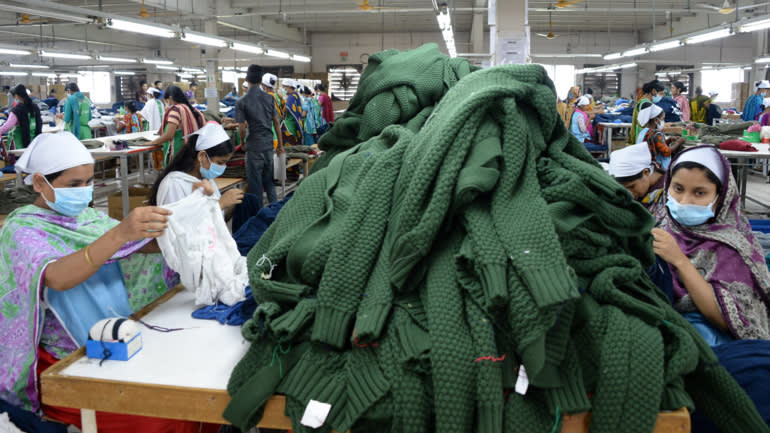 Factories like this one in Bangladesh stand to benefit as garment makers look to move more production out of China. (Photo by Yumi Kotani) |
|||
|
Officials in Cambodia, where about 630,000 workers are employed in the garment industry, say the country is benefiting from the trade war escalation. Commerce Minister Sorasak Pan told Nikkei that the ripple effects of Trump's policies are "probably better for us," as companies shift out of China. "We receive a lot of references from companies from other countries, especially from the EU, China and even the U.S.," he said in a Sept. 12 interview. "It's not only garments," he said, noting growth in orders for travel bags and goods, shoes and bicycles. This production shift seems to be happening even faster in the high-tech sector. Delta Electronics, a Taiwan-based provider of power components for Apple's iPhones and MacBooks, said it is buying an affiliate, Delta Electronics (Thailand), to secure better access to manufacturing bases in that country, as well as India and Slovakia. "The geopolitical environment is packed with uncertainties as the trade war between the U.S. and China has begun," said Delta Chairman Yancey Hai. "The first wave of the $34 billion tariff imposition from the U.S. has already affected Delta." |
|||
|
"U.S. buyers are asking for a solution. Otherwise, they have to pay the tariff" William Ma Wing-kai, group managing director of Kerry Logistics Network |
|||
|
"We have several locations outside China for us to expand to meet temporary needs if the trade battle continues to escalate," a Quanta official told Nikkei. Moving production lines is difficult, but the trade war threat has been good for businesses that help companies set up their supply chains. Kerry Logistics Network, a Hong Kong company with an Asia-wide network, is benefiting from the shift in production away from China. The trend became apparent in 2016 as mainland wages rose, but the trade war has "accelerated the speed," said Group Managing Director William Ma Wing-kai. The shift is apparent in companies that make electronics, apparel, household items, toys and more. "The U.S. buyers are asking for a solution. Otherwise, they have to pay the tariff," said Ma. Riding on this trend, the company's turnover for the first half of the year increased by 27% to 17.46 billion Hong Kong dollars ($2.22 billion), while its net profit jumped by 20% to $948 million. "We are one of the beneficiaries" of the trade war, Ma said. A "lose-lose situation" The flow of cargo ships -- a widely-watched barometer of global trade -- is also beginning to shift due to the China-U.S. tensions. Cosco Shipping Holdings, the world's third-largest shipping company, canceled a route connecting China and the U.S. in August "after considering the overall return of the U.S. route," Wang Haimin, general manager of the Shanghai-based company, said recently. In addition, Wang said that "about 10% of the cargo volume would be affected" by the 25% tariff that is slated to go into effect in January 2019. |
|||
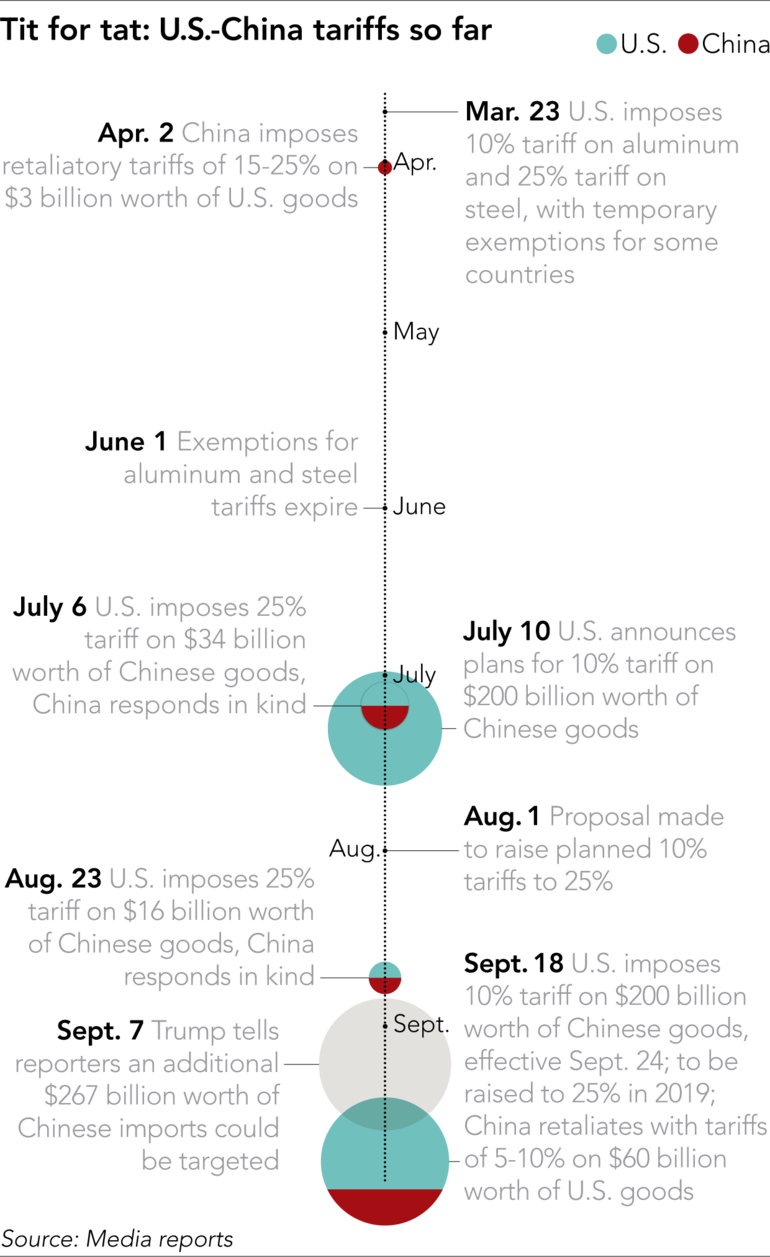 |
|||
|
Madhavi Bokil, vice president and senior analyst at Moody's Investors Service, says the world economy will not really feel the impact of the trade war until next year. He added that the possibility that trade tensions could derail global growth is now "more likely than a few months ago." Another major front in the trade war -- agricultural products -- is also creating both winners and losers in Asia. Olam International, the Singapore-based agribusiness company, has seen a big boost thanks to a significant increase in soybean shipments from Brazil to China, which placed a tariff on U.S. soybeans. Olam also increased almond shipments from Australia to China to the "highest levels" during the first half of the year, group CEO Sunny Verghese said in August. Beijing imposed a tariff on almonds from America, the world's largest exporter of the nuts. Olam was active in sourcing soybeans from Brazil since before the China-U.S. trade war erupted, so it has "been able to capitalize on some opportunities" to increase the volume very quickly, President and Chief Financial Officer N. Muthukumar said. But other global food companies are facing uncertainty, including WH Group, the owner of the biggest pork producers of both countries -- Smithfield in the U.S. and Shuanghui in China. |
|||
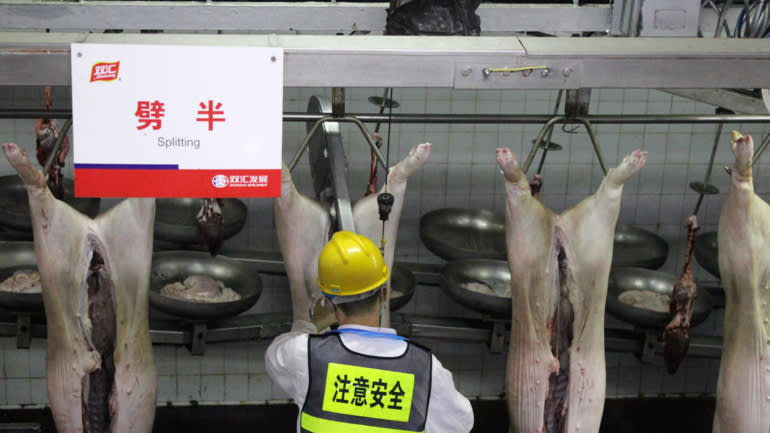 Tariffs on U.S. agricultural imports may prove a headache for WH Group, China's largest pork producer and owner of Smithfield, the largest U.S. pork company. (Photo by Nikki Sun) |
|||
|
"If the U.S.-China trade conflict continues, we will accelerate the pace of adjusting our trade portfolio for the U.S. unit to mitigate the impact," Chairman Wan Long at WH Group told reporters on Aug. 14. But Kenneth Sullivan, president and CEO of Smithfield, said the impact of trade issues has been "significant in every regard." The conflict has already dragged on longer than the company anticipated and has become more complicated in the U.S. after Mexican authorities imposed tariffs on its products, he said. Thwarted plans, costly cans As the Trump administration was squeezing China Zhongwang out of the U.S. market this year, it was also helping one of the Chinese company's rivals gain a beachhead in America. In 2017, a deal that a China Zhongwang affiliate had struck to buy an Ohio-based aluminum company called Aleris was blocked by the U.S. on national security grounds. Less than a year later, however, American officials gave a swift green light to the acquisition of Aleris by an Indian rival, Hindalco Industries, for $2.6 billion. Xu of Zhongwang declined to comment on the Hindalco-Aleris deal, but noted that her company has since "changed the strategy." |
|||
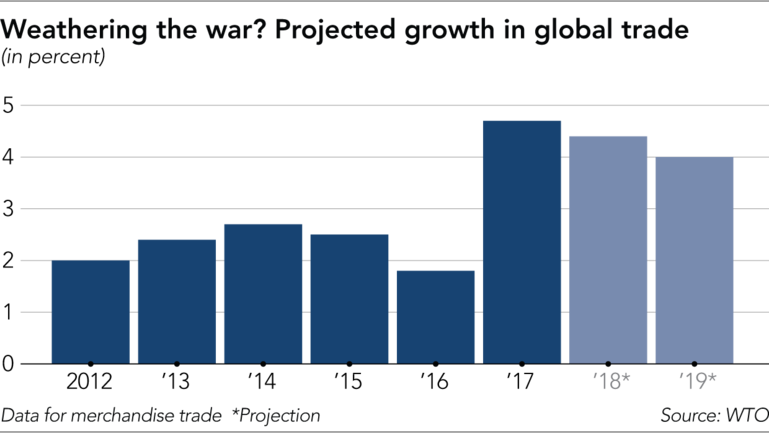 |
|||
|
"The Trump administration was the driver behind giving us in the U.S. the ability to compete for capital," JSW Steel USA CEO John Hritz told the Fox Business Network in June. "It's what the president did ... about making a fair playing field regarding stopping the dumping of steel from countries that were dumping illegally," Hritz said, mainly referring to China. While cutting supplies from abroad may have boosted U.S. aluminum manufacturers, the ripple effect is felt elsewhere -- including with American consumers. Coca-Cola, for one, said this summer that it would raise soda prices to reflect the rising cost of aluminum cans. "We had to take, with our bottling partners, an increase [in prices] in our sparkling beverage industry in the middle of the year, which is relatively uncommon. That's the metal steel and aluminum going up, the labor going up," James Quincey, Coca-Cola chief executive, told CNBC in July. |
|||
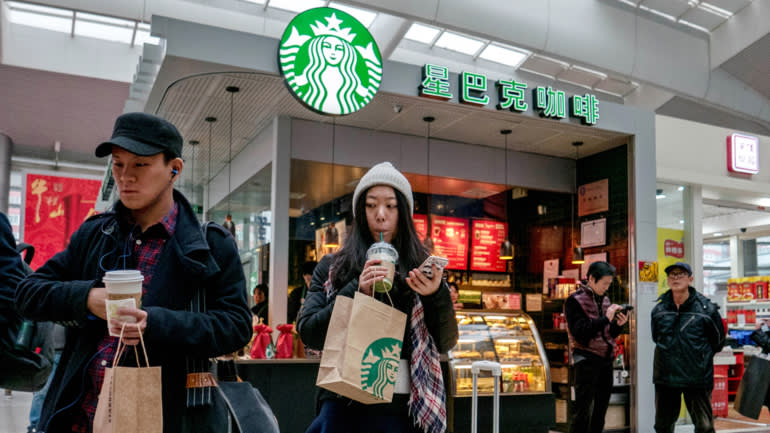 Starbucks and other U.S. brands are popular in China, but some companies are worried about a potential consumer backlash over the trade war. © Getty Images |
|||
The problems at the iconic American soda company have also become a concern for one of Asia's largest conglomerates, Swire Pacific. Swire, based in Hong Kong, operates Coca-Cola bottling franchises in both greater China and the western U.S. Michelle Low Mei-shuen, Swire's finance director, said its U.S. bottlers are going to be fine for the rest of this year, thanks to hedging strategies. But after that it is "uncertain how it will turn out." As for Swire's operations in mainland China, she does not see much trouble ahead unless the trade war results in a rejection of brands with a strong U.S. association. "That would be something disastrous," she said. Nikkei staff writers Cheng Ting-Fang, Lauly Li, Nikki Sun, Michelle Chan, Mayuko Tani, CK Tan, and Nikkei Asian Review editor-at-large Ken Koyanagi contributed to this story. |
|||
